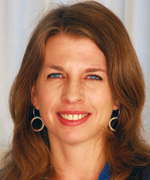By Elana Kaminka

KATHMANDU, Nepal — There’s something about Kathmandu that sounds exotic. Maybe it’s the proximity to the top of the world (Mt. Everest), or maybe it’s just that the name rhymes with Timbuktu. Either way, it’s certainly the last place you would expect to find a group of 25 twenty-somethings sitting on cushions and discussing the Talmud. Some are Israeli and some are American. A couple of the boys are wearing knit kippahs, some of the girls are clad in camis and loose peasant pants. The discussion is a mishmash of Hebrew and English, occasionally seasoned with a word or two in Nepali. The texts are are all Jewish sources on social justice.
The group is in Nepal as part of Tevel (or “Tevel b’Tzedek” in Hebrew), an Israeli-based NGO founded in 2006 by Rabbi Micha Odenheimer, an award-winning journalist and an Orthodox-ordained rabbi who defines himself as “post denominational.” The impetus for its creation was what has become almost a rite of passage for young Israelis- the post-army trip to the far east.
“These kids are at such a juncture, outside of a structured framework for the first time in their lives, creating their independent adult identity and values,” says Odenheimer. “However at this critical time they have no connection to their Jewish roots. In addition, most of them see extreme poverty during their travels and just keep walking. How does that affect their motivation for social activism and philanthropy in the future? What kind of influence would a significant volunteer and cultural exchange have on them? What if it was in a Jewish context? After six years of working with these kids I know the answer to those questions. I’ve seen hundreds of Tevel alumni going back to Israel and the US and becoming leaders and activists in their home communities, committed to social justice inspired, not disconnected, from their Judaism.”
“But in order for that magic to happen, the work we are doing has to be real, not a volunteer Disneyland. Millennials are careful consumers. If they don’t feel like they are doing significant and sustainable development work they’ll vote with their feet. We started off using the internship model, and placing volunteers in other organizations. But there were two major problems with that method. First of all, we were outsourcing the main part of our activity to someone else, and really couldn’t guarantee the type of experience that the volunteers would have. Secondly, we weren’t making a measurable impact in Nepal. We wanted to be able to create sustainable change in the communities where we work” said Rabbi Odenheimer.
“The roots of poverty are complex and intertwined. People love the idea of coming into a community with a new technology or innovation and doing a ‘quick fix’. But from my extensive experience, most of those type of projects don’t work. If you don’t invest in building relationships with the community, getting a deep understanding of their society and creating buy-in, you can’t really create change. That’s why we commit to 3-4 years of direct intervention in the communities where we work. Our outstanding Nepali staff lives in the community building strong relationships with the villagers and creating continuity in all activity. The volunteers enhance that ongoing work with their special skills and enthusiasm.
Tevel offers three volunteering tracks: Exchange for Change, a three-week cultural exchange and volunteering program that targets backpackers already in Nepal, the Tevel Workshop, a 4-month in-depth volunteer experience, and the Tevel Fellowship, a year-long fully funded program for young professionals. All three programs include an orientation on Nepali culture and language, theoretical study of issues such as globalization and poverty, and Jewish text study in an open and pluralistic framework.
Leading Jewish philanthropists, impressed by Tevel’s impact, are starting to take notice and get involved. In April 2013 Tevel hosted supporters Trevor Pears, chairman of the Pears Foundation, and Sandy Cardin, executive cirector of the Schusterman foundation in Kathmandu, where they visited development projects and met volunteers. The Leichtag Foundation, based in San Diego, is also actively supporting Tevel, and offering general financial aid to young adults from San Diego who participate in the program.
“We approach development work with a lot of humility” says Odenheimer, “Before we change others, we first have to change ourselves”.
*
Elana Kaminka is an international education professional. She has managed volunteer and internship programs in Israel such as Career Israel and MDA Ambulance volunteers and has also done marketing and grantwriting for NGOs.